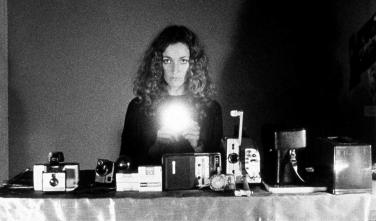
Deux Fois, Jackie Raynal, France, 1968, 63'
Roughly, Deux Fois– is Raynal's remarkable Zanzibar Films feature. Wollen rightly regards it as one of the most astonishing films of the period. Raynal began it as a filmed diary of her encounter with a stranger in Barcelona, in the company of a cameraman-accomplice, André Weinfeld, the camera operator on Garrel's Marie pour Mémoire [1967]. Deux Fois spontaneously draws into itself many influences, histories and traditions. It has been analysed as a deconstructive film and a feminist essay on 'woman as sign', but Raynal also uses less modish sources, such as the Surrealism of Buñuel and Cocteau, as well as a theatricality inspired by Rivette. The film is not only a formalist tour de force, but also mytho-poetic, ritualistic, incantatory – not to mention ironic, performative and mocking (its Warholian side). Beyond what we will never know or understand about this often deliberately cryptic film, the core, phantasmal logic which holds it together is built from various motifs – storytelling, theatre, the couple, dreams and fantasy, the figure of the child – that suggest a new version of Lewis Carroll's Alice in Wonderland. A woman enters into a perpetual metamorphosis, in which she becomes a child. She enters into this self-perpetuating, auto-erotic ritual via all the masks and motions of artifice. However, such regressive liberation into the imaginary realm is always threatened by instability and danger: this woman is constantly drawn back to the public, societal scene of adult sexuality, with its threatening, mysterious, alluring masculine others, its set roles and burdens. Deux Fois is about the difficult trials and passages of the 'single woman' – her absorption into herself and her relations with others, both modes of being viewed as equally impossible.
Deus Foix– is Raynal's remarkable Zanzibar Films feature. Wollen rightly regards it as one of the most astonishing films of the period.
